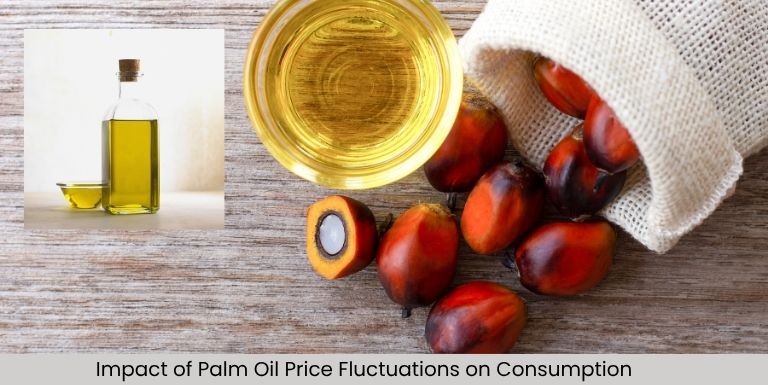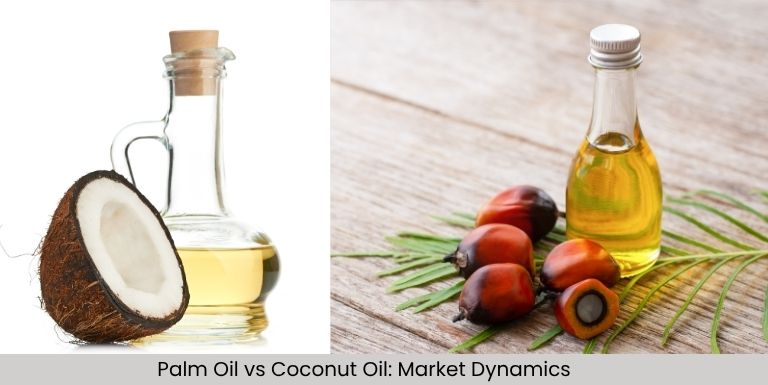Objective:
This article aims to help procurement professionals, refinery managers, and food manufacturing businesses across the Middle East understand how volatile global prices of palm oil and coconut oil are influencing local demand trends, purchasing strategies, and supply chain resilience. It also highlights adaptive procurement approaches that can help Middle Eastern buyers secure consistent supply, maintain profitability, and ensure long-term competitiveness.
Global Palm Oil and Coconut Oil Price Landscape: Key Market Drivers
The global edible oil market operates on a delicate balance of production, export policies, and consumption trends. Palm oil, accounting for nearly 35% of the world’s vegetable oil output, is directly influenced by biodiesel demand, weather patterns, and Southeast Asian export regulations.
Similarly, coconut oil pricing depends on tropical yield variations, labor availability, and competition from palm kernel oil. Even minor disruptions — such as Malaysian duty changes or typhoon-related losses in the Philippines — can immediately alter import costs for Middle Eastern buyers.
How Palm and Coconut Oil Price Volatility Reaches the Middle East
The ripple effects of global RBD Palm Oil and RBD Coconut Oil price swings reach every importer in the region. While major refiners in the UAE and Saudi Arabia rely on long-term contracts and strategic reserves, smaller players in Syria, Jordan, and Lebanon must navigate tighter cash flow and volatile currency exchange rates.
Procurement cycles are now shorter, and many importers favor quarterly adjustments to manage freight and exchange rate fluctuations, ensuring both agility and budget control.

Shifting Demand and Consumption Patterns in Edible Oils
Rising costs have forced manufacturers to rethink formulations and sourcing. RBD Palm Olein (CP6, CP8, CP10) remains dominant in industrial frying, bakery fats, and shortenings because of its stability and affordability. However, when palm oil prices surge, some manufacturers turn to sunflower or soybean oils as partial substitutes, depending on local availability.
RBD Coconut oil, though traditionally more expensive, maintains strong demand in high-end confectionery, personal care, and nutraceutical sectors. Its price elasticity is higher—meaning buyers are quick to adjust usage volumes or switch to palm-based lauric fractions when prices spike.
The overall trend across the Middle East shows adaptive demand management, where product blends, batch sizes, and private label formulations evolve to absorb cost volatility.
Evolving Procurement Strategies for Palm and Coconut Oils
Leading Middle Eastern edible oil importers and refineries importers are re-engineering their procurement frameworks to manage risk more effectively. Many companies are adopting multi-tier sourcing, splitting their annual volumes between spot and long-term contracts to hedge against unexpected price surges. Others are investing in digital procurement systems that provide real-time market data, freight updates, and cost benchmarking.
Strategic sourcing now includes:
- Partnering with suppliers across multiple origins (Indonesia, Malaysia, the Philippines, and Sri Lanka) to ensure continuity.
- Negotiating flexible delivery terms and CIF/FOB mix models based on freight stability.
- Using forward contracts and trigger-based purchasing to lock in prices when market dips occur.
- Building regional warehousing capacity to store oils during low-price periods.
Digital procurement tools now enable real-time tracking of RBD Palm Oil and RBD Coconut Oil prices, helping buyers plan long-term cost efficiency.
Freight and Logistics: The Hidden Variable in Edible Oil Pricing
In volatile markets, logistics has become as important as the commodity itself. Freight costs through the Red Sea, Suez Canal, and Arabian Gulf can make or break landed cost efficiency for Vegetable Ghee and refined oils.
Buyers in Egypt and Jordan are especially sensitive to shipping disruptions, while UAE and Saudi Arabia benefit from diversified port access and better infrastructure.
Many importers are now negotiating freight inclusions directly with suppliers or using freight indices to maintain transparency. By combining shipping data with commodity market intelligence, procurement teams are improving visibility into their total cost of ownership.

Palm vs. Coconut Oil: Different Roles, Different Tactics
Palm oil’s large-scale industrial applications make it relatively price inelastic. It’s difficult for manufacturers to replace entirely, but they can adjust product grades — such as RBD Palm Olein CP6, CP8, or CP10 — based on desired melting points and cost.
Coconut oil, by contrast, serves niche markets and experiences sharper demand shifts. When its price rises, confectionery and cosmetics companies often reduce volume or turn to Cocoa Butter Substitutes (CBS) and Cocoa Butter Replacers (CBR) as functional alternatives.
Thus, procurement teams in the region tend to treat palm oil as a core volume commodity and coconut oil as a premium specialty input, managing them under separate buying strategies.
Market Outlook for Palm, Coconut Oil, and Vegetable Ghee (2025 and Beyond)
Looking ahead, palm and coconut oil prices are expected to remain volatile due to global biofuel mandates, unpredictable weather, and freight route risks. However, as Middle Eastern food manufacturing capacity continues to expand, regional procurement sophistication will grow in parallel.
Companies that embrace data-driven decision-making, strategic supplier partnerships, and agile contracting will be best positioned to thrive in this uncertain environment. The goal isn’t to eliminate volatility—it’s to convert it into a competitive advantage through smarter sourcing and risk management.
Conclusion
Global fluctuations in palm and coconut oil prices have permanently changed the way Middle Eastern businesses approach procurement. Successful buyers are now operating with flexible contracts, diversified supply chains, and digital market visibility. They are no longer passive price takers but strategic negotiators, balancing short-term volatility with long-term partnerships.
By combining intelligent procurement strategies with traceability standards, regional manufacturers can ensure consistent production, cost efficiency, and global competitiveness—even in a volatile market landscape.
As one of the region’s most trusted suppliers,Usha Edible Oil continues to play a vital role in stabilizing the edible oil trade across the Middle East. With a strong portfolio including RBD Palm Oil, RBD Palm Olein (CP6, CP8, CP10), RBD Coconut Oil, Vegetable Ghee, and Shortening, the company provides consistent quality, reliable supply, and customized export solutions. Backed by advanced refining technology and international quality certifications, Usha Edible Oil helps businesses navigate market fluctuations with confidence—ensuring their production never stops, even when global prices shift.
FAQs
Why do global palm and coconut oil prices fluctuate so frequently?
Because of changing weather conditions, export policies, biodiesel mandates, and global logistics costs. Key producing nations like Indonesia, Malaysia, and the Philippines heavily influence pricing through yield variations and export duties.
How does price volatility impact buyers in the Middle East?
Price swings directly affect procurement budgets, production costs, and retail pricing. Importers face higher working capital requirements, especially in Egypt, Jordan, and Lebanon, where currency fluctuations amplify global price changes.
What can Middle Eastern buyers do to manage these risks?
They can adopt mixed-term contracts, partner with reliable exporters, hedge currency exposure, and utilize digital procurement platforms to track global price movements in real time.
How is edible oil procurement in the region?
Buyers are increasingly preferring RSPO-certified palm oils and traceable coconut oils to meet international requirements and strengthen their global partnerships.
How is Usha Edible Oil supporting customers amid price volatility?
Usha Edible Oil ensures a stable supply chain with refined, high-quality edible oils that meet global standards. By offering competitive pricing, timely delivery, and tailored export packaging, the company helps its partners manage cost fluctuations while maintaining product quality.
Which sectors in the Middle East are most impacted by these price shifts?
Bakery, confectionery, and frying oil manufacturers are the most sensitive, as edible oils and fats represent a major portion of their input costs. Reliable sourcing from trusted suppliers like Usha Edible Oil helps them maintain production stability.
Author Bio

Sales Manager
Muhammad Usman, Sales Manager at Usha Edible Oil, combines years of industry experience with a strong focus on customer relationships. His expertise ensures that Usha Edible Oil delivers high-quality products, including RBD Palm Oil (CP6, CP8 and CP10), RBD Coconut Oil, Specialty Fats, Vegetable Shortening, Vegetable Ghee, and Margarine, to meet the diverse needs of global markets.
With a commitment to excellence, Muhammad continues to lead Usha Edible Oil in providing innovative and reliable vegetable oils and fats, solidifying its position as a trusted supplier in the food industry.


